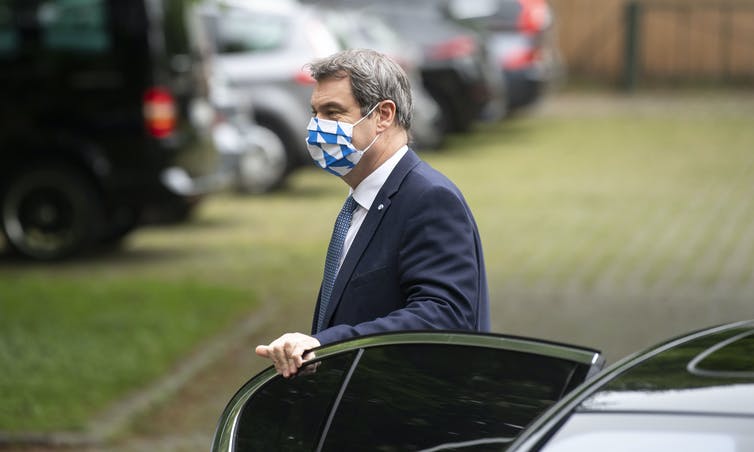Germany debates making N95 masks mandatory as Bavarian State Premier, Markus Söder announced that from Monday, N95 masks (known as FFP2 masks in Germany and KN95 in China) will be mandatory in stores and on public transport.
This comes just days after he suggested vaccination should be obligatory for health workers. The southern German state is on its own with the plan in Germany so far because many states have lower infection rates and health experts have taken a liking to the notion.
“FFP” stands for “filtering face-piece.” One main difference from the mouth-nose coverings that have become a common sight throughout the world is that they sit closer to the face and filter both the air that is inhaled and exhaled.

READ MORE: Germany sets stricter lockdown measures. What has changed and what remains the same
It is known that FFP masks offer more protection than normal mouth-nose coverings which reduces the risk of infection from people in public places.
“I am in favour of the idea in principle,” says fellow virologist Jonas Schmidt-Chanasit to DW. He added, however, that it is no good to just insist that everybody wear one, saying there had to be free access to the masks and information on how to wear them properly.
The FFP2 or N95 masks are normally used in work situations because of the higher specifications, which, in turn, make for higher costs. In Germany, they cost about €2.50 each. That makes them practically in-affordable for families on low incomes if the state does not step in.
Officially, FFP2 masks may only be used once. The leader of the Left Party, Katja Kipping, was quick to argue that “making FFP2 masks mandatory without providing them for free would effectively mean that poor people would be totally excluded from public life.”
Since December, subsidized FFP2 masks have been available free of charge at pharmacies to senior citizens and other high-risk patients. Media reports say Bavaria plans to distribute some 2 million masks to those who cannot afford them.
